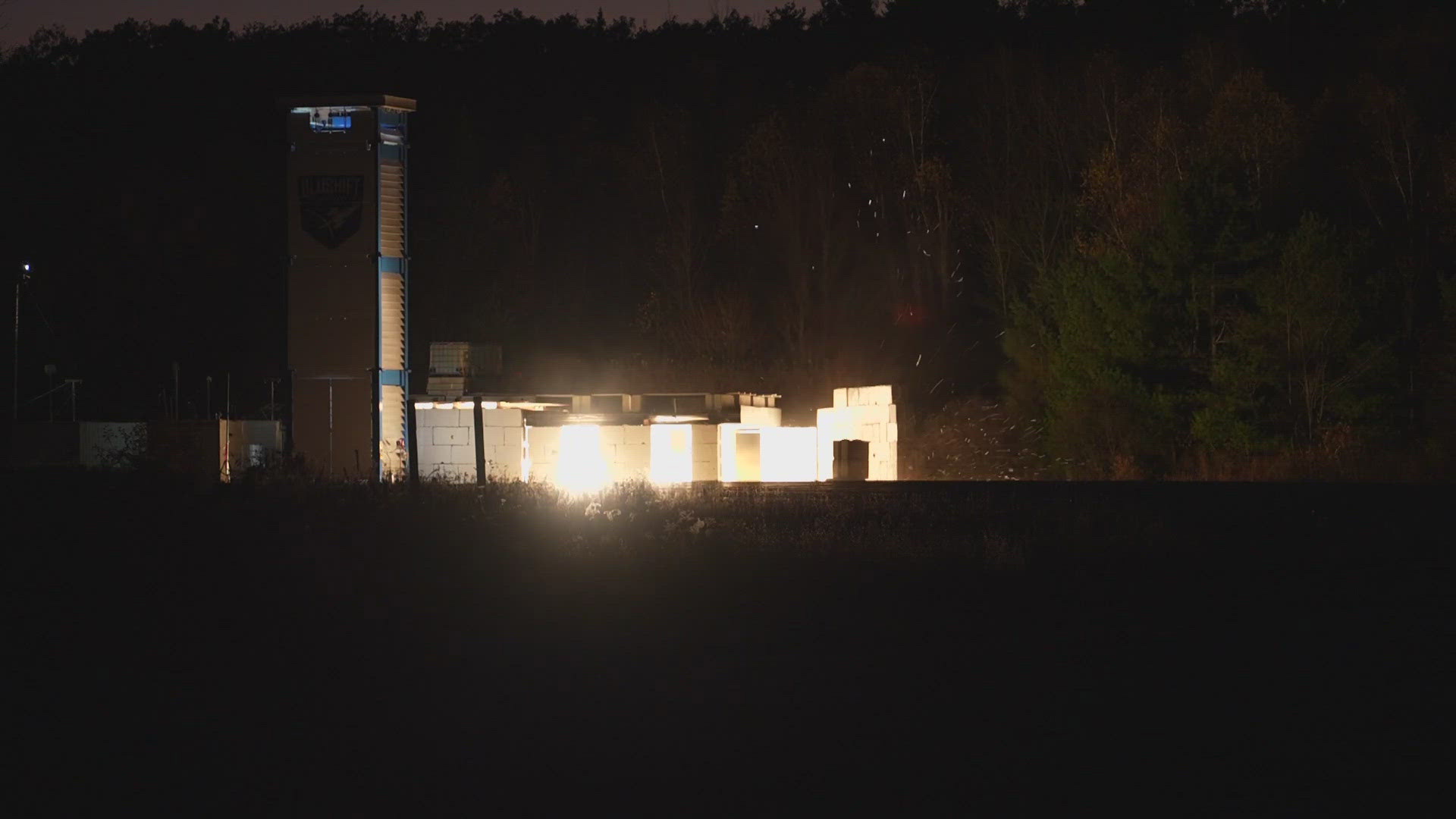BRUNSWICK, Maine — On a brisk October evening, next to the tarmac at Brunswick Executive Airport, my ears hadn't stopped ringing when Sascha Deri threw open the door to the used camper his team had converted into a "mission control" center and gave a yell into the sky.
His company, bluShift Aerospace, had just completed a minute-long test burn of its proprietary Marvl rocket engine.
Before the test, Deri and Chief Technology Officer David Hayrikyan compared the potential noise to that of a large jet engine at takeoff. The difference, they each smirked, is that the rocket engine would burn for a full minute.
Standing a little more than 400 yards away, journalists and invited guests watched the test. One observer mercifully handed out ear plugs to the group.
Some 60 seconds later, after Deri floated out of the camper, he eagerly asked for feedback.
"The grumble, huh?!" he smiled wide. "That was fantastic."
He explained that there would need to be more tests to dial in the engine's stability, before eventually building a rocket body he claimed would be sourced from as many Maine-based manufacturers as possible. Deri has roughly 10 people on staff. Most, he said, had degrees from a University of Maine System school.
An increasing number of Maine companies, like bluShift, continue pushing boundaries in pursuit of the final frontier.
That's the report Terry Shehata gave to me earlier that day, just south of Brunswick in a Portland hotel ballroom. Outside interest has also bolstered growth. Within the past year, California-based Teledyne Technologies became an anchor tenant at Brunswick Landing, part of the old Naval air base that has become the hub for Maine's space industries. MaineBiz reported the company is worth $5.5 billion, provides digital imaging, instrumentation, and engineered systems, and built infrared detectors for the James Webb Space Telescope.
"Given where the global economy - space economy – is going, Maine has to be on that train," Shehata said. "We can’t lose. Otherwise, if we rely too much on existing industries, we’re not going to be able to economically grow."
Maine doesn't have the tech hubs of California or the central shipping ease of the Midwest. But we do have something that can't be developed: a short distance to a polar orbit at the top of our globe. Companies like bluShift intend to use that orbit to launch small satellites for customers and even those of students in Maine.
"I think Maine is making a choice to be a player in the new space realm," Deri explained. "And this goes well beyond rockets. Rockets are just one part of the piece. Really, the bigger part of this market is all of those things you can do in space, from satellites to data analysis."
A small number of protesters gathered outside each of the first two Maine Space Conferences, with some involved saying they do not broadly oppose Maine's involvement in the industry, but did not want rocket launches in Maine.

